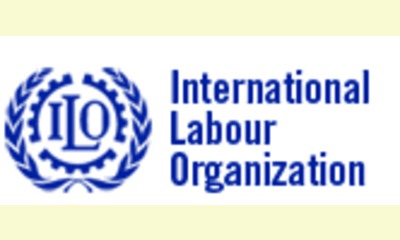|
|
Colombia ratifies the Domestic Workers Convention
un articulo por International Labour Organization
On 9 May 2014, the Government of Colombia
deposited with the International Labour Office the
instrument of ratification of the Domestic Workers Convention, 2011 (No. 189).
Colombia is the fourteenth ILO member State and
the eight Latin American member State to ratify
this instrument that seeks to improve the working
and living conditions of tens of millions of
domestic workers worldwide.

click on photo to enlarge
In transmitting the instrument of ratification,
the Permanent Representative of Colombia to the
United Nations Office in Geneva, Ambassador Juan
José Quintana, stated: “I am very pleased to have
the opportunity to deposit the instrument of
ratification of Convention No. 189, which brings
to 61 the number of international labour
Conventions ratified by Colombia.
The Ministry of Labour, Mr Rafael Pardo, presented
the Convention to the Congress and defended its
constitutionality before the Constitutional Court.
He also gave impulse to the adoption of
legislation that implements the Convention and
favours domestic workers. In this regard,
legislation was approved that allowed paying
social security contributions for domestic
employees working for periods of less than one
month, thus ensuring that such workers are covered
under pension, occupational risk and compensation
fund schemes according to the number of days
worked.
Moreover, a significant increase was registered in
the number of domestic workers affiliated to
family allowance schemes that grew from 9,000 in
2012 to more than 30,000 in 2013. Therefore, at
the time Convention No. 189 will enter into force
for Colombia, its domestic legislation will not
only be in conformity with the Convention but also
ensure and facilitate its full implementation.”
In receiving the instrument of ratification of
Convention No. 189 by Colombia, the Director of
the International Labour Standards Department, Ms
Cleopatra Doumbia-Henry, stated: “I am
particularly pleased that today’s ratification of
Convention No. 189 by Colombia confirms and
reinforces the leading role of Latin American
countries in endorsing the Convention, thus
ensuring that domestic workers enjoy the same
basic labour rights as other workers.
This Convention aims to afford long overdue
protection to that shadow, female-dominated
category of workers often excluded from nation
labour legislation and therefore deprived from
basic labour rights that the majority of workers
enjoy, such as limits on hours of work, weekly
rest days, annual paid holidays, minimum wages and
social security coverage. The ratification by
Colombia confirms that the momentum around the
Domestic Workers Convention remains undiminished
with more ratifications expected in the very near
future.”
More information on Convention No. 189 and ILO’s
work on domestic workers may be found here.
[Editor's note. According to the ILO, the convention is
already in force in Bolivia, Paraguay, Nicaragua
and Uruguay, as well as Italy, Mauritius and the
Philippines. It has not been ratified and, of
course, is not in force, by any of the richest
countries in the world.]
(Click here for a Spanish version of this article or here for a French version)
|








|
DISCUSSION
Pregunta(s) relacionada(s) al artículo :
What is the state of human rights in the world today?,
* * * * *
Comentario más reciente:
:
Each year we get overviews of the state of human rights in the world from Amnesty International and Human Rights Watch.

|
|









